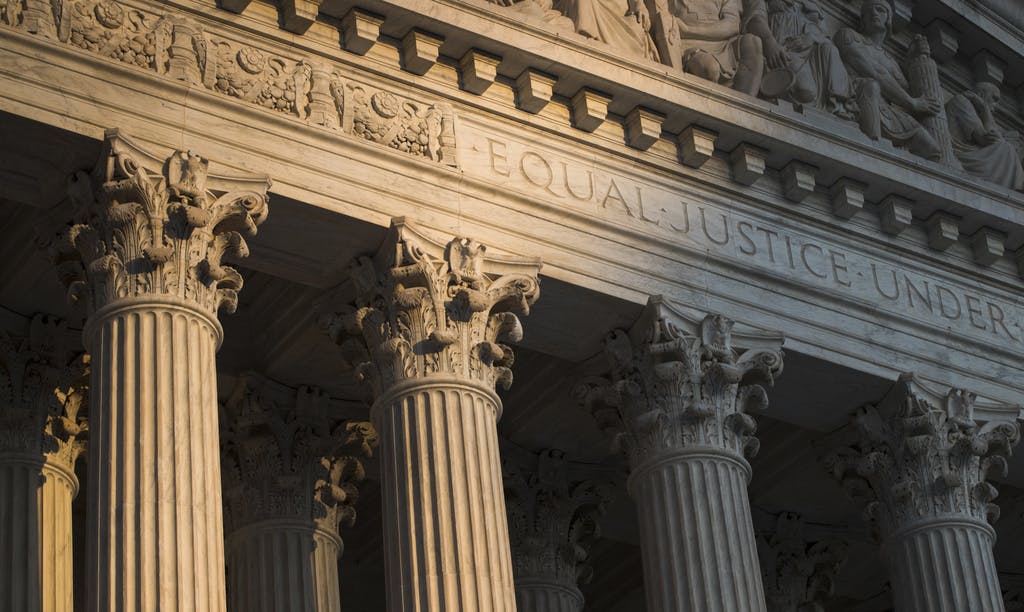Supreme Court Declines To Hear Case of North Carolina Professor Who Says He Was Punished for Speaking Out Against ‘Woke Joke’ DEI Initiatives
The Fourth Circuit Court of Appeals said last year that the professor’s criticisms of DEI were not protected speech.

The Supreme Court has declined to hear the case of a North Carolina professor who claims he faced retaliation from superiors after speaking out against diversity, equity, and inclusion policies at his school.
The man in question, Stephen Porter, is a professor of higher education at North Carolina State University. He claims that his public criticism of DEI at his institution and more broadly at American colleges and universities led his school to refer to him as a “bully,” exclude him from academic program planning, and deny him involvement in a new PhD program at the school.
He sued the university’s board of trustees in 2021 in a federal district court, arguing that his criticism was protected by the First Amendment. He had written over the course of several years that an academic association had become a “woke joke,” among other things, and also objected to including questions about diversity to course evaluation surveys.
The district court judge dismissed Mr. Porter’s lawsuit, and a three-judge panel of the Fourth Circuit Court of Appeals later ruled 2–1 against his claim. The judge who wrote the opinion, Stephanie Thacker, said his anti-DEI statements were not constitutionally protected speech.
“As to the ‘Woke Joke’ blog post, even assuming, as the district court did, that it amounted to protected speech, Appellant fails to allege a sufficient causal connection to state a claim for retaliation,” Judge Thacker wrote in 2023.
Mr. Porter’s most prominent example of alleged retaliation was his removal from the school’s Higher Education Program Area. Judge Thacker said he failed to prove anti-DEI statements had anything to do with his removal.
“Appellant’s complaint makes clear that he was removed from the HEPA because of his ongoing lack of collegiality — not because of the content of his blog post,” Judge Thacker wrote.
In their appeal brief to the Supreme Court, Mr. Porter’s lawyers claimed that his lawsuit represented a watershed moment for higher education, and provided the court with an opportunity to side with free speech over the “social justice” movements prominent at American universities.
“If this retaliation goes unchecked, public universities will rapidly lose any semblance of ideological diversity and will be unable to function as the quintessential marketplace of ideas that is ‘one of the vital centers for the Nation’s intellectual life,’” the lawyers wrote.
The lone dissenting judge on the Fourth Circuit panel, Julius Richardson, said it is the responsibility of the university and the North Carolina attorney general’s office to provide more information about Mr. Porter’s lack of inclusion in certain aspects of his department’s programming.
“Porter was indeed speaking as a citizen on a matter of public concern,” Judge Richardson wrote in his dissenting opinion. “And — based on his complaint’s allegations — it is plausible that the University retaliated against him because of it. The University thus must put forth evidence to justify its action. But, at this early stage of litigation, the government has not made that showing. So we should allow Porter’s suit to proceed.”

